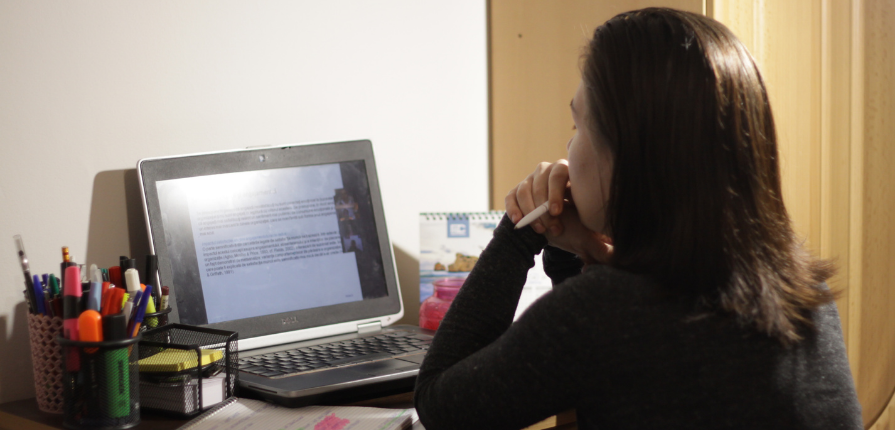Fall 2020 at the eight CIVICA members meant a safe and enthusiastic start, optimised digital tools, and supportive virtual campus communities.
Whether “fall semester,” “autumn trimester” or “Michaelmas,” the first term of the academic year 2020/21 started with an open, socially-distanced campus for most of the students, faculty, researchers and staff at the eight universities in our CIVICA alliance.
In response to changing pandemic conditions across Europe in late 2020, CIVICA members switched to the virtual space, building on the lessons from spring to offer an improved online educational experience. The pandemic challenged us to respond not only with optimised e-learning solutions, but also with opportunities for students to participate and interact, both inside and outside the virtual classroom.
While each CIVICA university implemented tailored solutions to these challenges, our common goal has been to ensure that our students, faculty and staff can continue to thrive in the digital space. Going forward in 2021, these added experiences form a solid foundation as we collaborate to develop innovative educational tools and bring our communities closer as CIVICA.
Here is a look back in pictures at the fall term across our alliance.
Bocconi University
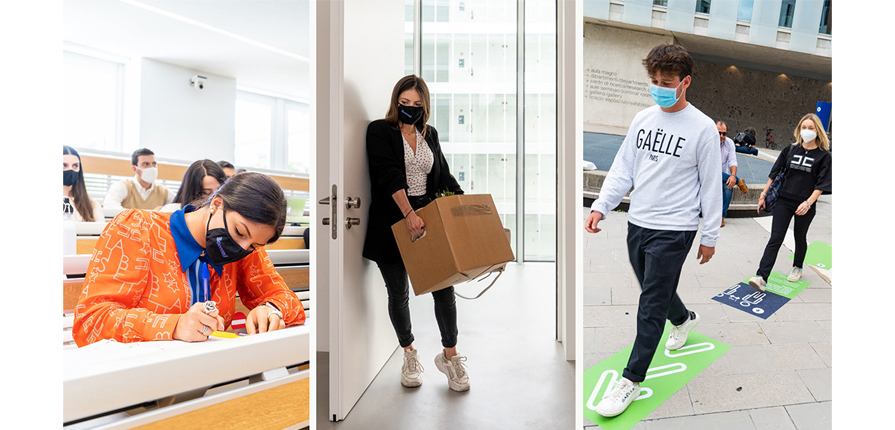
The new academic year at Bocconi began on 24 August 2020, with the welcoming of new students, who, careful to follow the directions and the new campus signs crucial for ensuring social distancing, were ready to experience university life. 90% chose to follow the blended teaching model guaranteeing that at least 50% of their classes were held in person. “Living on campus is essential to fully get the university experience, but we must also make the most of digital technologies to improve and design a new teaching model of the future,” explained Rector Gianmario Verona.
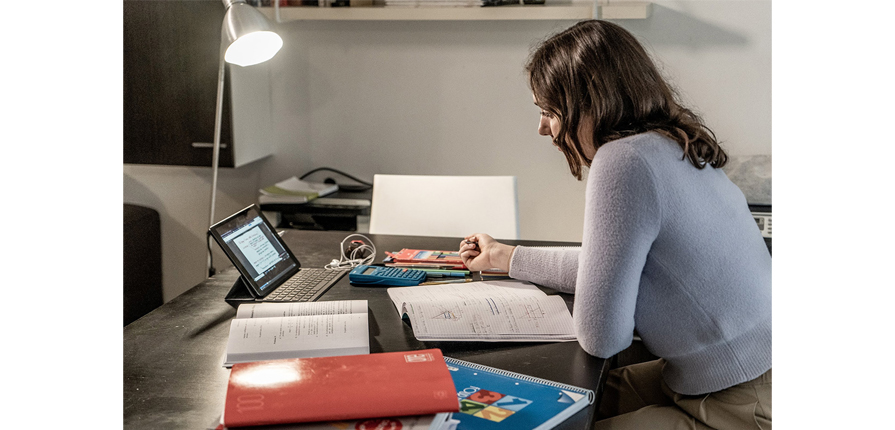
As soon as Italy had to deal again with the pandemic, e-learning returned to being the primary teaching model. “The advantage of e-learning, in addition to keeping us engaged in a particular moment like this, is flexibility”, says Maria Roberti, a Law student from Milan. “Moreover, professors are also proving very helpful and responsive to our needs,” adds Tereza Boynova, an International Economics student from Zimbabwe who lives in one of Bocconi’s eight halls of residence. “The system’s immediacy and ease of use has made it effective for students because what matters most is not the tool itself, but the way in which interaction is enabled,” explains Leonardo Caporarello, Director of BUILT (Bocconi University Innovations in Learning and Teaching).
Central European University
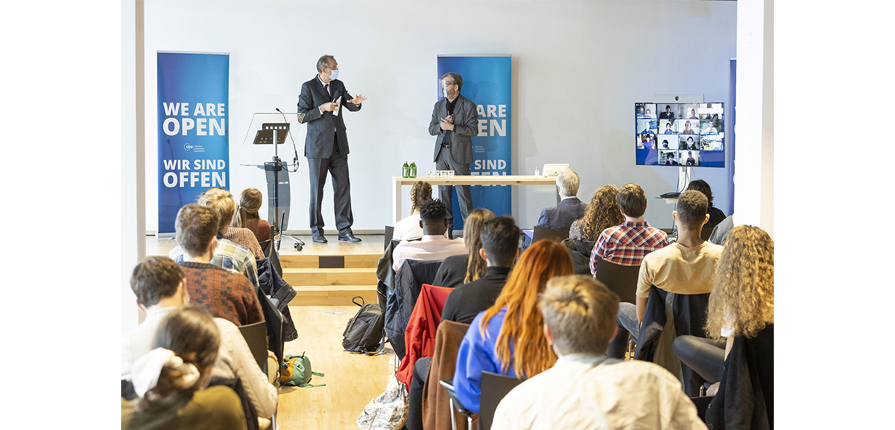
CEU’s fall semester began with in-person classes as well as hybrid learning options responsive to pandemic conditions. Marking the opening of the Austrian academic year, Federal Minister of Education Heinz Fassmann made an official visit to CEU’s new Vienna campus. Welcomed by CEU Rector and President Michael Ignatieff, Fassmann then addressed students present in the auditorium and participating online, members of CEU’s first-ever cohort of undergraduate students.
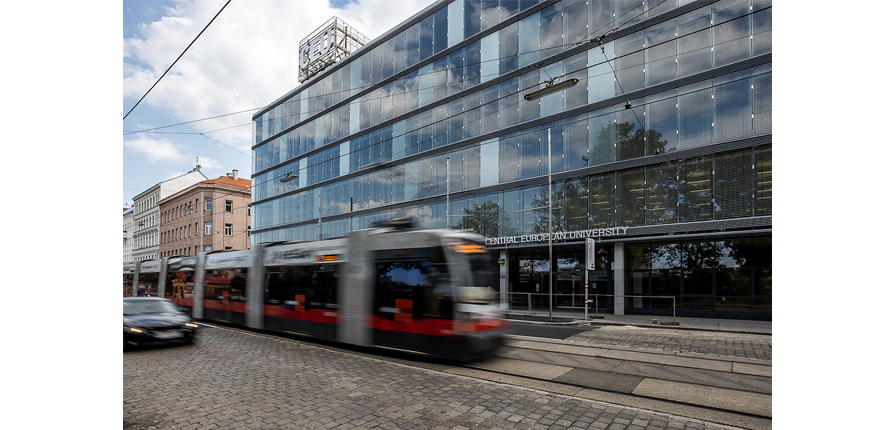
As teaching moved fully online, the campus quieted. “There were new and different ways to virtually socialise – meet new people from CEU. This is especially the case with volunteering for different projects. These kinds of events can make us feel less lonely and more active,” notes Lumi Beqiri. Fellow student Swithin Thomas agrees, adding: “What I’ve learned the most has been how much we need each other… On the whole, studying online has been far better than I expected it to be.”
European University Institute
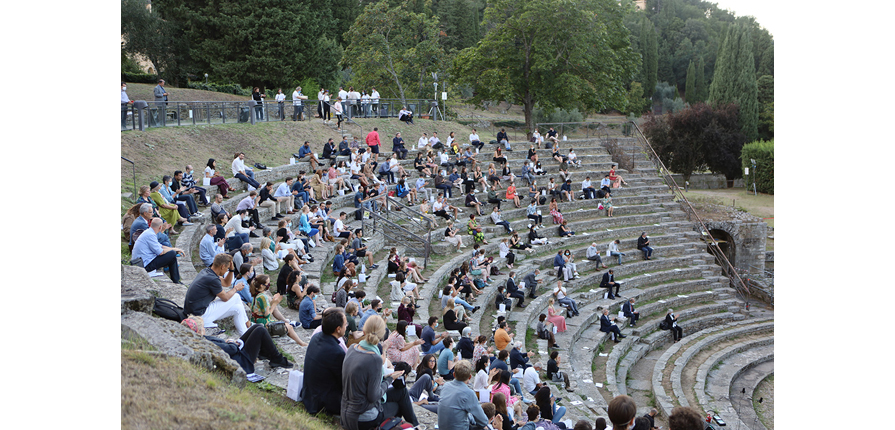
The EUI gave its traditional welcome to the new cohorts of students, researchers and fellows in the Roman amphitheatre located above the campus in Fiesole, Italy. It was an extraordinary evening, a moment to celebrate that everyone had managed to arrive in Italy, and that the academic programmes would be starting as planned. EUI President Professor Renaud Dehousse gave a heartfelt welcome for what everyone perceived to be an especially significant opening to the new academic year.
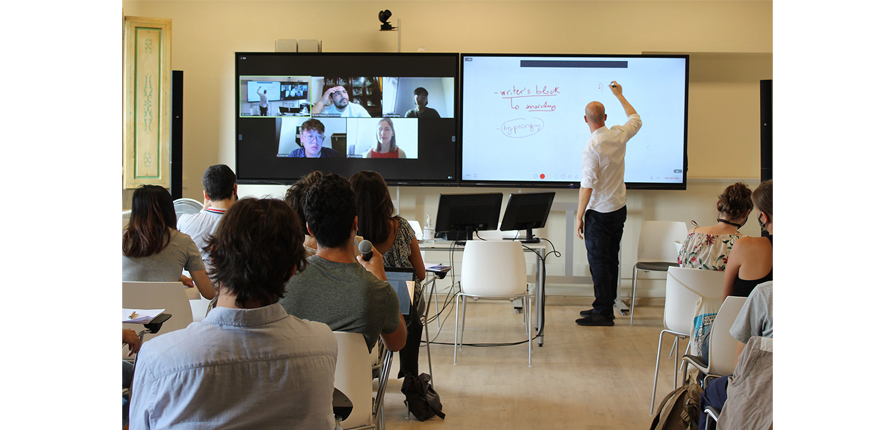
In the fall term, the EUI was determined to provide its students, researchers and fellows the best learning experience possible given the changing health restrictions in place. This resulted in a range of solutions, from 100% online courses to hybrid seminars and workshops using interactive state-of-the-art software and technology. Seminars, research supervision and theses defences continued without interruption. Both administrative and academic members of the EUI came into campus on a rotating basis, to ensure adequate distancing everywhere, at all times.
Hertie School
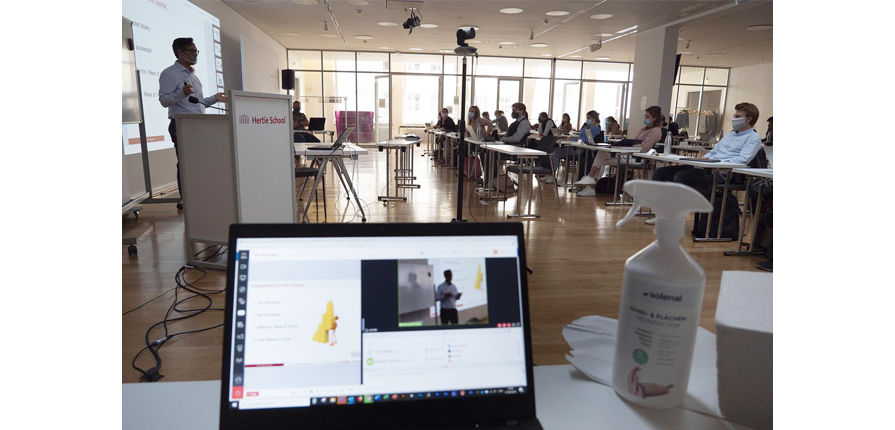
The Hertie School’s fall semester 2020 got off to a hybrid start, with around a third of its 500-plus students attending classes remotely. A combination of pre-recorded and live classes accommodated different time zones and classes were designed to ensure students could engage with the materials, their peers, and instructors. Hertie’s Digital Learning and IT teams developed digital tools, trained faculty and assistants, and outfitted classrooms with technology to help bring the semester to life.
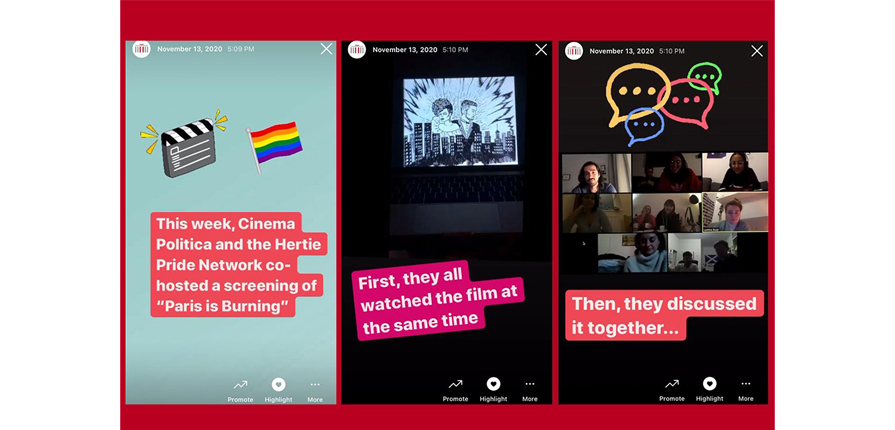
The most difficult and arguably the most significant challenge for getting through this tough period was maintaining Hertie’s strong community connections, especially as lockdown rules were tightened. Student-led events, like Cinema Politica evenings, where students watched and discussed a film online together, helped ease the sense of loneliness. The Student Life team held a virtual “De-Stress Fest”, and offered workshops on mental well-being and coping mechanisms. Throughout November, Hertie School graduates and current students participated in a series of events related to Hertie Alumni November – including a digital career counselling fair and a digital alumni reunion.
National University of Political Studies and Public Administration (SNSPA)
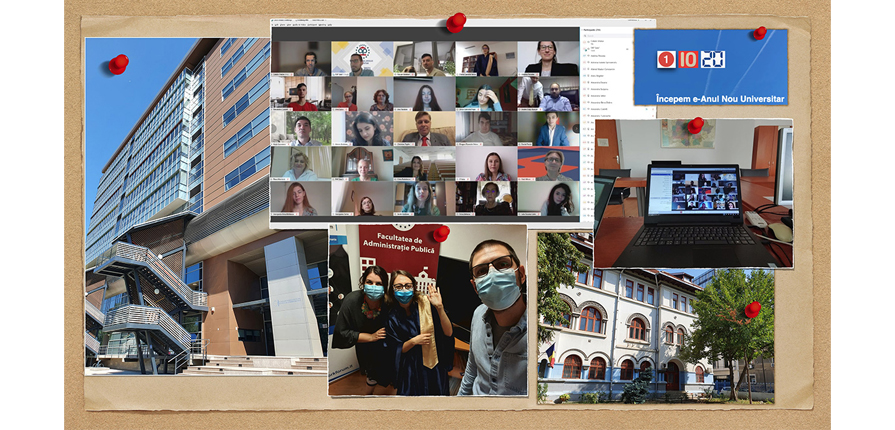
Over 5,000 SNSPA students gathered online for the beginning of the new academic year on 1 October 2020. All SNSPA faculties marked the start of 2020-2021 academic year by organising online events dedicated to students and teachers. With enthusiasm and hope, Diana Iancu, Dean of the Faculty of Public Administration at SNSPA, together with colleagues, welcomed first-year students to a virtual opening of the academic year, respecting the safety measures and the rules for academic ceremonies adopted during the COVID-19 pandemic in Romania.
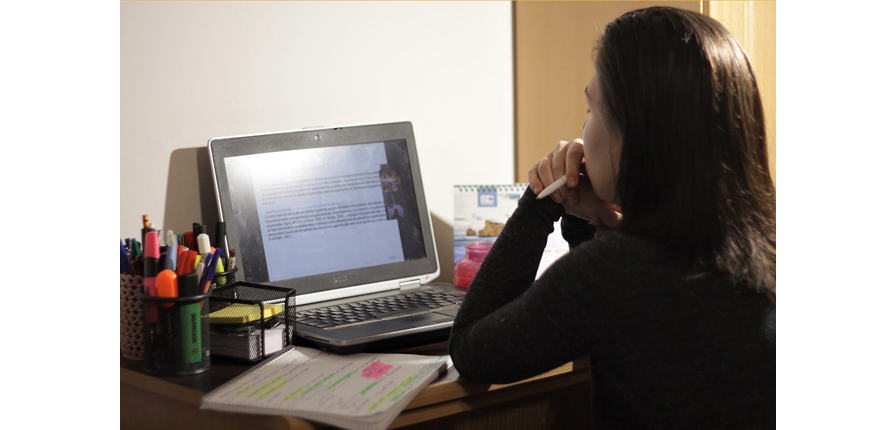
Due to COVID-19, SNSPA student Mihaela Andreea Floarea had to take the entrance exam online. She is currently a first-year student in Managerial Communication and Human Resources, one of the master’s programmes at the College of Communication and Public Relations (FCRP). So far, she has seen her colleagues and professors only online. However, Mihaela hopes that things will soon improve and has thoroughly enjoyed her student experience. In this photo, she listens and takes notes on organisational diagnosis and strategic management of human resources. She is currently preparing for the winter exam session.
Sciences Po
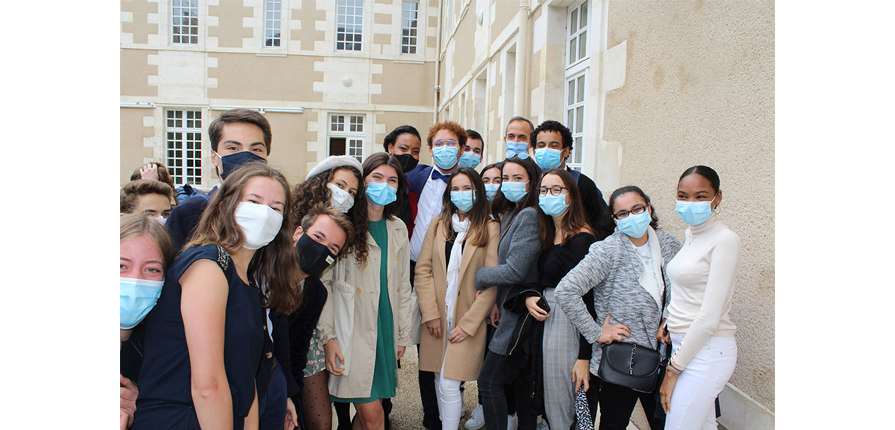
At Sciences Po, the fall semester 2020 began with a dual campus model in place, allowing all students to attend classes virtually or in-person, depending on their curriculum, preference and situation. Despite the enduring health crisis, many of the new and returning students kicked off the academic year on one of the seven campuses, showing resilience, determination and excitement for inaugural lectures, new classes and student activities.
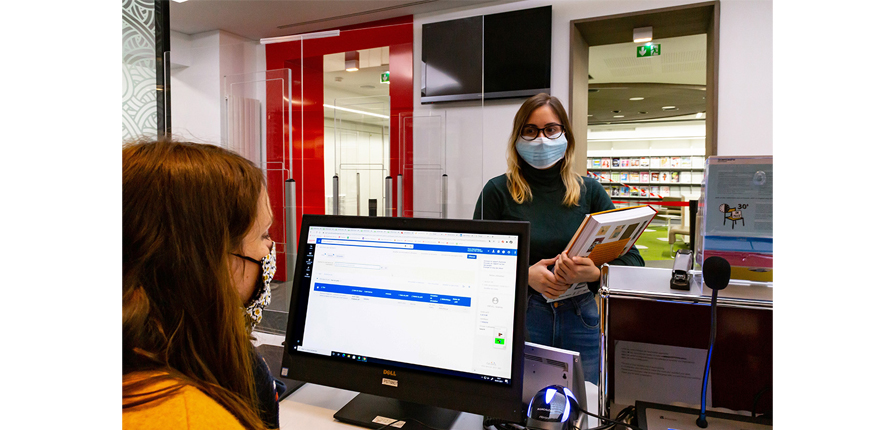
The second wave of the pandemic forced Sciences Po to close its doors to the public at the end of October, moving all classes and activities fully online. As the dual campus model had been designed in anticipation of a second lockdown, the switch was smooth and students were able to continue classes, activities and projects seamlessly using digital tools already in place (Zoom, Moodle, Whaller, and others). Nonetheless, the libraries remained open to students at limited capacity and with a reservation, allowing them to continue to check out books and documents, and have a place to study outside of their homes if they wished.
Stockholm School of Economics
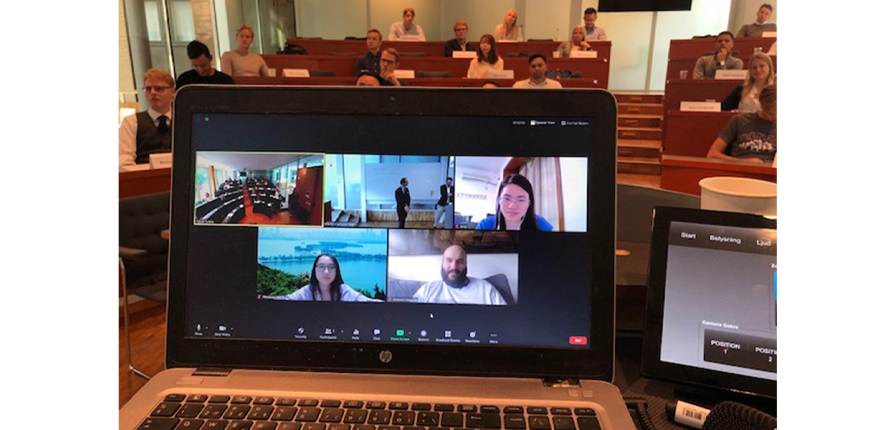
The fall semester at the Stockholm School of Economics started off with a hybrid solution where students could attend some classes in small groups, while other classes were held online. As the pandemic situation worsened in Sweden, e-learning became the primary teaching model again.
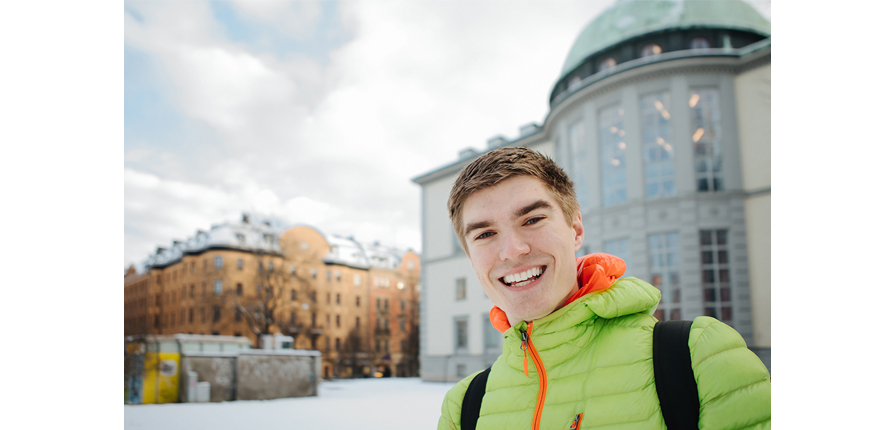
“I am grateful that we had the possibility to meet some of our new classmates in smaller groups at the school as we started. The fact that we could make connections and build a foundation before all the classes went online has been crucial for us now when we study at home,” says Filip Lindersten, who studies Business and Economics. He agrees with other students that the e-learning solutions provided by the school have worked out well, but is looking forward to meeting fellow students as well as the teachers in real life again. The exams at the Stockholm School of Economics have taken place as planned, but remotely, with various technical solutions and online supervision.
The London School of Economics and Political Science
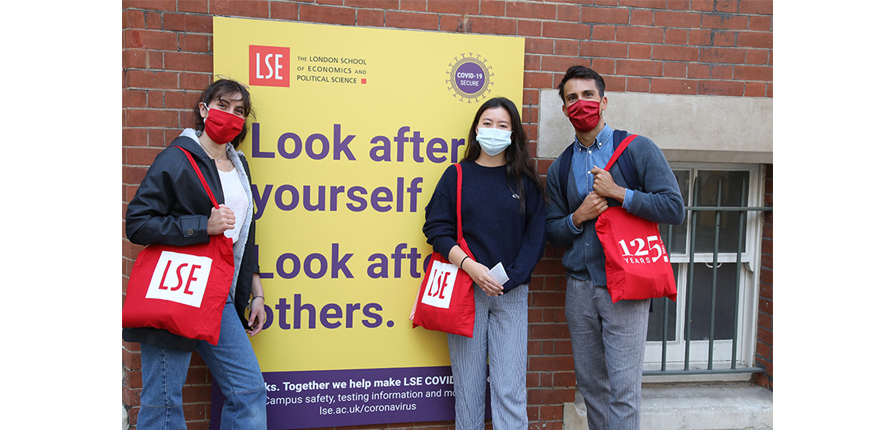
Students arriving at LSE for the start of term in September found campus set up for a COVID-19 secure autumn. Posters and practices in buildings and shared spaces on campus and in halls of residences sent a strong message of community support as well as safety. The start of term also marked LSE’s 125th anniversary.
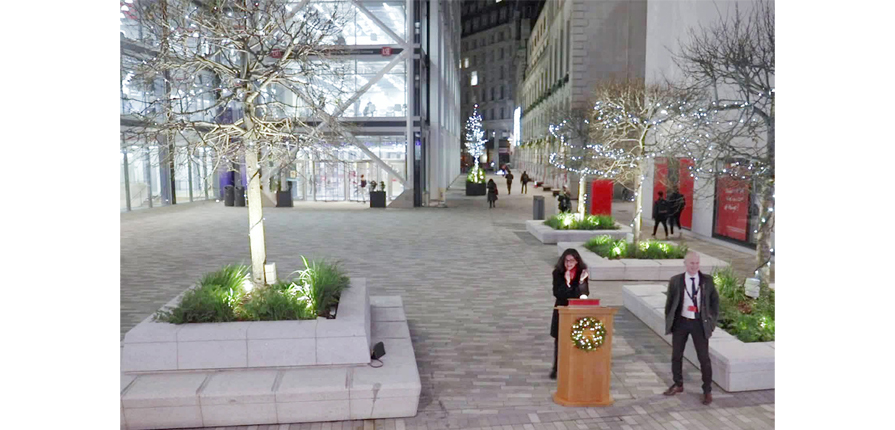
Because students have been spending more time experiencing LSE remotely, and with compulsory teaching and assessment remaining online for the rest of the 20/21 academic year, maintaining a strong sense of community – and ensuring the whole community has access to all the support LSE provides – has remained a top priority. When LSE’s Director Baroness Minouche Shafik switched on the campus Christmas lights in 2020, she signalled not only the start of the festive season but LSE’s ongoing resilience as a community. Fewer people may have been out and about to enjoy the lights in person, but the footage has been watched over 23,000 times on Instagram alone.
Photo credits (in order of appearance): CEU: Benedikt von Loebell, Adrian Zoltan; EUI: Marco Benvenuti, Maria Laura Minoli; SNSPA second photo: Mihaela Andreea Floarea; Sciences Po: Sylvain Rochas, Caroline Maufroid; SSE second photo: Juliana Wiklund; LSE: Nigel Stead, Dave Smith
About CIVICA: Selected in 2019 by the European Commission as one of the pilot European Universities, CIVICA brings together eight leading European higher education institutions in the social sciences, humanities, business management and public policy, with a total of 50,000 students and 10,000 faculty members. Together, they build on an ever-stronger combination of teaching, research and innovation to mobilise and share knowledge as a public good and to facilitate civic responsibility in Europe and beyond.
www.civica.eu | Twitter: @CIVICA_EU


